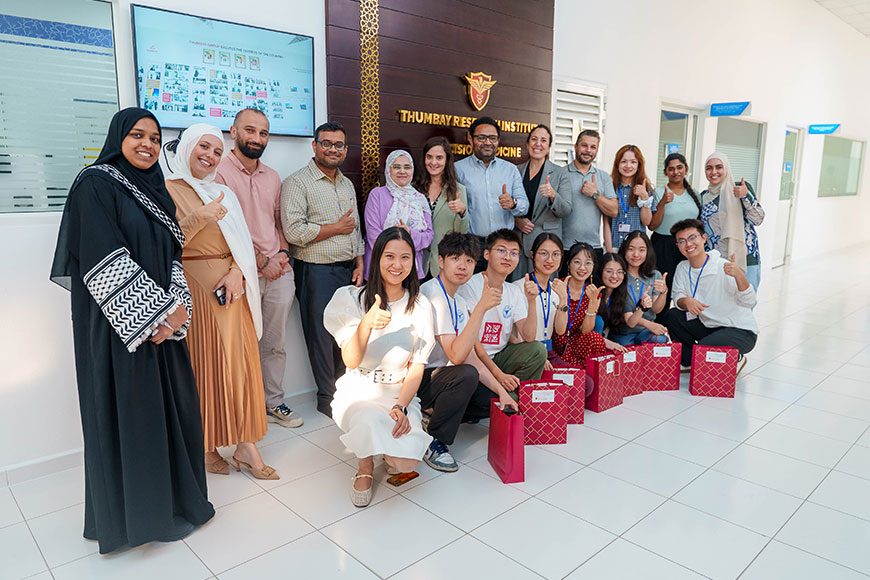For the second year in a row, TRIPM was delighted to welcome five exchange students from The First Affiliated Hospital, Zhejiang University School of Medicine (FAHZU), China, for a dynamic two week training program. The visit combined rigorous laboratory training with meaningful academic exchange, creating an enriching experience for both the students and the TRIPM faculty.

The students were immersed in a wide range of laboratory techniques that connected theory with practice. They explored xenografting using zebrafish; covering cell preparation, labeling, and injection; while also being introduced to the working and operation of the zebrafish facility, highlighting its importance in translational cancer research. Training also covered immunofluorescence, including fixation, permeabilization, antibody staining, and confocal imaging, as well as essential molecular biology practices such as RNA isolation, cDNA synthesis, and gene expression analysis through qPCR and RT-PCR. The students were further introduced to Western blotting for protein detection and quantification, reinforcing the emphasis on accuracy, reliability, and data integrity throughout their training.
Beyond the lab, the exchange was marked by interactive discussions that enriched the experience. Students shared details of their ongoing research projects at FAHZU, spanning areas such as cancer metabolism, ferroptosis, pancreatic ductal adenocarcinoma, and hypoxia-related mechanisms in pancreatic cancer. Their reflections highlighted the value of working alongside TRIPM’s faculty who not only shared cutting-edge expertise but also introduced them to valuable online tools, experimental design strategies, and new ways of thinking about biomedical challenges. Several students noted how this was their first exposure to advanced experimental workflows, describing the experience as both inspiring and transformative.
Equally meaningful were the human connections built during the program. Students expressed gratitude for the welcoming and supportive environment created by their mentors and the TRIPM team. They praised the approachability and dedication of the faculty, the generosity of their mentors, and the collaborative spirit that characterized every stage of the program. For many, this exchange was more than just a technical training; it was a reminder that scientific discovery transcends boundaries, and that the future of medicine lies in collaboration across fields, cultures, and institutions.
Student Testimonials
“…….I was deeply impressed by the approachable and supportive faculty, as well as their meticulous and passionate approach to scientific inquiry. This visit has broadened my academic perspective and reinforced the value of international collaboration in education and research. I sincerely look forward to further strengthening our partnership. Warm welcome to the students and faculty of GMU to visit China in the future for mutual learning and innovative advancements in medical science.”
– Xiaobao Wei, Ph.D in Surgery, Zhejiang University.
“…….To conclude, this experience has been a profound reminder that the boundaries of scientific discovery are often found at the intersection of different fields. Though the diseases are different, the fundamental language of cellular life and death remains the same. We are not just researchers in separate silos; we are all explorers charting different parts of the same vast map of human health. The future of medicine lies in connecting these dots.”
– Yifan Zeng, Ph.D in Infectious diseases, Zhejiang University.
Written by – Farhana Fathin, Research Assistant Reviewed by – Dr. Javad Karimbayli, Faculty & Researcher

